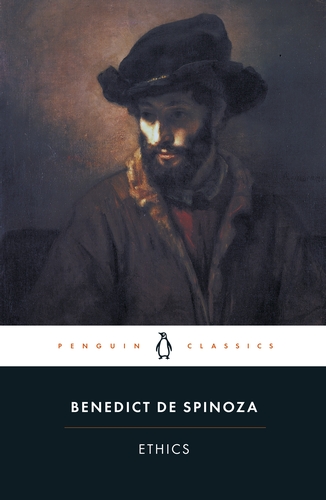
Ethics Summary of Baruch Spinoza's Book

Ethics by Baruch Spinoza: A Comprehensive Summary
First published in 1677 shortly after Baruch Spinoza's death, "Ethics" stands as one of the most important works in the field of philosophy. This masterpiece tackles fundamental questions about the nature of reality, the existence of God, human emotions, and the path to living an ethical life. Spinoza's logical and systematic approach to these topics has cemented his reputation as one of the most influential thinkers in Western philosophy. In this article, we will explore the characters, provide a detailed summary, and delve into an extensive analysis of this timeless classic.
Characters
As a work of philosophy, "Ethics" does not contain traditional characters in the literary sense. However, the central figure in Spinoza's discourse is humanity itself. Through the exploration of God, the mind, emotions, and the power of understanding, Spinoza delves into the essence of what it means to be human. He challenges readers to confront their own beliefs, emotions, and actions through a rational and introspective lens.
Detailed Summary
In a logical step-by-step format, "Ethics" begins by defining the nature of God as a substance that is infinite, having infinite attributes. Spinoza argues that God, or Nature, is the only substance in existence, with everything else being modes or manifestations of this singular entity. He then moves on to explore the nature of the mind and the emotions, delving into the concept of human bondage to the emotions and the power of understanding to transcend them.
The book continues by examining humanity's place in the natural order, the nature of freedom, and the path to attainable happiness. Spinoza posits that by understanding the interplay between the mind and emotions, individuals can free themselves from the tyranny of their passions and achieve a state of equanimity and joy. Through rigorous philosophical inquiry and reflection, Spinoza offers a roadmap to living a fulfilling and ethical life centered on reason and understanding.
Extensive Analysis
"Ethics" is a monumental work that showcases Spinoza's profound intellect and his unparalleled ability to synthesize complex philosophical concepts into a coherent and elegant cosmology. By grounding his arguments in logic and reason, Spinoza challenges readers to critically examine their beliefs and emotions, urging them to strive towards a higher understanding of themselves and the world around them.
One of the key themes in "Ethics" is the idea of redemption through intense thought and philosophical reflection. Spinoza posits that by cultivating a clear and rational mind, individuals can overcome the limitations of their emotions and achieve a state of true freedom and happiness. Through disciplined introspection and self-examination, readers are encouraged to engage in a lifelong pursuit of self-improvement and moral growth.
Final thoughts
To conclude, "Ethics" by Baruch Spinoza is a timeless philosophical masterpiece that continues to resonate with readers to this day. Through its meticulous analysis of God, the mind, emotions, and ethics, Spinoza offers a compelling vision of what it means to live a fulfilling and ethical life. Whether you are a seasoned philosopher or a novice reader interested in exploring profound ideas, "Ethics" is a must-read for anyone seeking to deepen their understanding of the human experience.
If you enjoyed this summary, we highly recommend purchasing the complete book to fully immerse yourself in Spinoza's transformative ideas. Alternatively, you can listen to the audiobook version for a more immersive experience. Happy reading!
9780140435719 (ISBN10: 0140435719)






Related Books